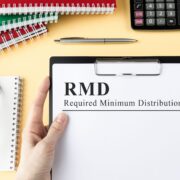You can start getting payments at age 62, and there’s no advantage to waiting beyond 70. However there’s an advantage to waiting till age 70.
For those of us ages 62 to 70, choosing when to start taking Social Security is a significant problem.
You can start getting payments at age 62. And there’s no advantage to waiting beyond 70.
But there is an advantage to waiting until age 70– you will receive larger payments. If you retire at age 70 in 2023, your optimum benefit would be $4,555 a month.
A crucial element here is your full retirement age. Those born in 1955 and previously have actually reached it. For those born in 1956-1959, that age is between 66 and 67. For those born in 1960 and later, it’s 67.
If you begin taking your Social Security advantage prior to your full retirement age, your advantage drops permanently by about 0.56% for each month before that age.
If you begin more than 36 months before your full retirement age, the benefit falls about 0.42% for each month prior to that age beyond 36 months.
Financial Sacrifices of Taking Social Security Early
A Charles Schwab research study report provides an example.
“Let’s presume you stop working at age 62. If your full retirement age is 67 and you elect to start benefits at age 62, the minimized advantage estimation is based upon 60 months,” the report says.
“So, the decrease for the very first 36 months is 20% (five-ninths of 1% times 36) and after that another 10% (five-twelfths of 1% times 24) for the staying 24 months. In general, your advantages would be permanently lowered by 30%.”
After reaching your complete retirement age, you get an additional 8% for each year that you delay beginning your Social Security advantage until you’re 70. So if your complete retirement age is 67 and you wait until 69 to take Social Security, your payment would increase by 16%.
A side note: You can get Social Security and work at the same time. However if you are younger than complete retirement age and make more than an annual incomes limitation, your benefit will be reduced.
As you’ve probably assumed, it make sense to delay your payments till 70, unless you can’t manage to do so.
‘More Than 90% Should Wait Up Until Age 70’
“We discover that essentially all American workers age 45 to 62 should wait beyond age 65 to gather,” according to a report by 3 specialists. “More than 90% needs to wait until age 70. Just 10.2% appear to do so.”
To be sure, waiting does not work for everyone. If you have a low life span, you might wish to get your benefits well before 70. Ditto if you have high spending requirements, maybe medical expenditures, that you can’t fund through other sources.
Also, you may be stressed about the monetary security of Social Security. Since June 2022, the Social Security Trust Fund was anticipated to cover all guaranteed advantages till 2035.
At that point, without action from Congress, advantages would have to be cut for all current and future recipients to about 80% of set up benefits, the Schwab report explains.
“If you’re hesitant about the future of Social Security or wary of possible modifications, you may be lured to begin benefits early, assuming that it’s much better to have something than absolutely nothing,” the Schwab report explained.
However if you don’t have that issue, waiting might be helpful.
























Comments